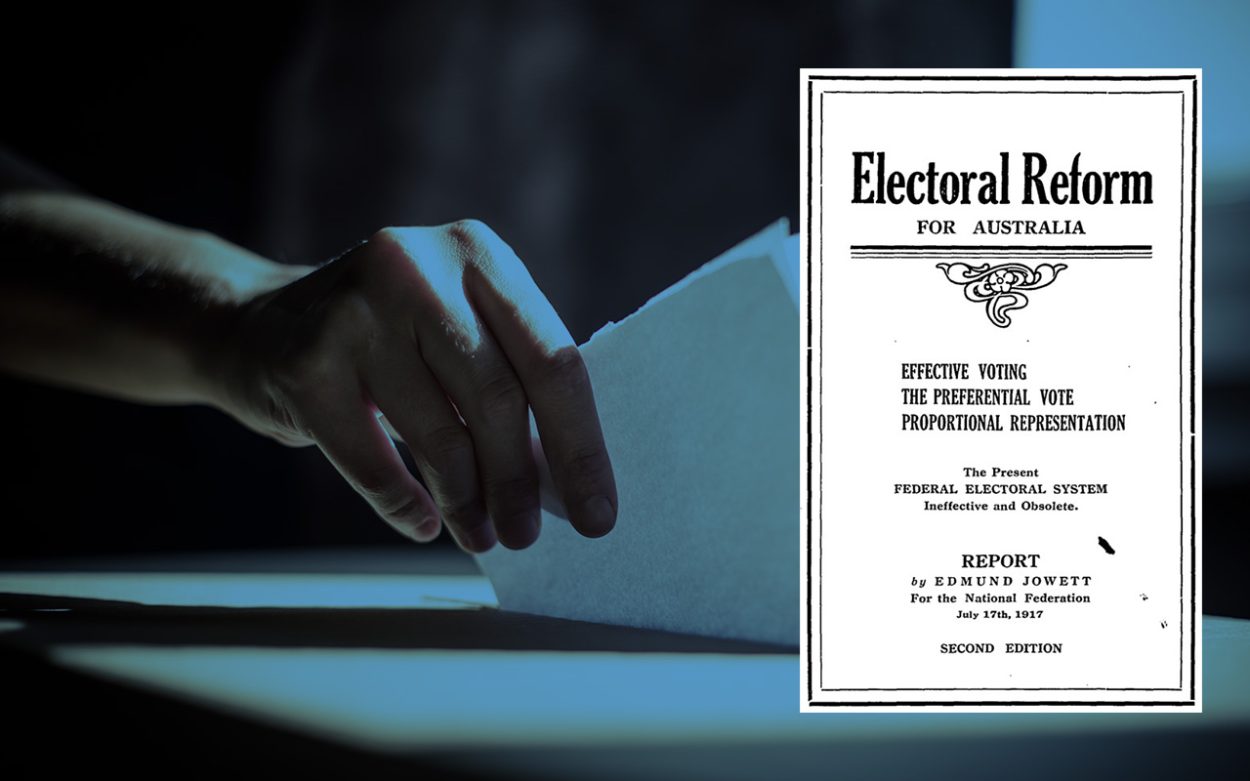THE Commonwealth Electoral Act was comprehensively rewritten in 1918 to introduce preferential voting, replacing the previous “first past the post” system that had existed in the years after Federation. The change was in response to the rise of the Country Party in the aftermath of the First World War – a third major party – and the prospect of the loss of seats to Labor through a split in the non-Labor vote.
The three-party system which preferential voting helped to support has remained fundamentally unchanged to this day. The system has also encouraged the participation in elections of minor candidates that have little chance of winning, but that can potentially influence the outcome by directing preferences according to their values. Instrumental to the success of a candidate can be the careful consideration of preferences on the candidate’s how-to-vote card to attempt to gain the greatest advantage possible.
All of the Flinders candidates have released their how-to-vote cards for the 3 May election with insight into their values, and a spotlight on the careful, and sometimes inexplicable, calculations that are undertaken.
Two candidates, independents Ben Smith and Joseph Toscano have indicated they will not be suggesting preferences, leaving it up to the voter to decide after putting them first place on the ballot. For Smith, it is vindication against the persistent criticism that he would preference Labor or the Greens. “I want to empower people to make their own choices based on their own values and the candidate’s policies,” Smith told The News. “We need to give people credit. They can and should determine their own preferences.”
The Labor candidate for Flinders, Sarah Race, has placed the Greens’ Adam Frogley second on her preferences, and Smith third, with Liberal Zoe McKenzie taking fourth spot on the ticket. That is followed by self-proclaimed anarchist Toscano in fifth, One Nation’s Mike Brown in sixth and Trumpet of Patriot’s Jason Smart in last position.
Race told The News the decision on who to preferences is a “joint conversation between head office and the local campaign”. “The decision is made on the candidate and party’s ability to articulate their policies and who they will support to form government. Women’s health and a clear position against Dutton’s $600b nuclear scheme are particularly important to me,” said Race.
Despite Labor giving their preferences to the Greens, the favour hasn’t been returned, with the Greens Adam Frogley’s how-to-vote card putting Race fourth above McKenzie, Smart and Brown. The Greens, instead, have elected to preference Smith second. It is a win for the Smith campaign that would need to come in above Labor to battle it out with McKenzie on a two-party preferred basis to see who wins the seat of Flinders.
One Nation’s Mike Brown and Trumpet of Patriot’s Jason Smart announced on 16 April they would be standing together as a “unified alliance”. Smart told The News the alliance was “to show voters across Flinders that we are not divided – we are strategic, transparent, and ready to defend our nation’s future”. Accordingly, Smart stated his intention to place Brown second on the Trumpet of Patriots ticket, and Brown announced he would place Smart second on the One Nation ticket. “This isn’t a random order,” said Brown. “It’s a clear and considered stand to block the growing Greens–Labor–Teals alliance that threatens our national identity, economic security, and social stability.”
Smart’s plans were thrown into disarray when news came down from Trumpet of Patriots head office that they had decided on the preferences for Smart, and the second preferences would go to Smith.
The head office decision was at odds with what Smart had planned, and went against the pair’s plan to preference away from what Brown described as the “Greens-Labor-Teals alliance”.
Brown told The News “It appears that Clive Palmer has thrown his own candidate under the bus”.
“Jason was in shock, and so was I. We both had to seek advice on what to do next to protect our individual dignity and reputation.” Smart, for his part, was unable to resolve the preference issue with Trumpet of Patriots head office, and on Monday (21 April) sensationally called on voters to “put him last”, saying he would be devoting his effort to assisting Brown with his campaign instead. “If Clive Palmer thinks I’m going to put my love for my country to the side so he can try and gain some political relevance, he’s dead wrong,” said Smart. “I’m nobody’s chump.”
The decision by Trumpet of Patriots head office left Brown scrambling to reprint 25,000 how-to-vote cards before early voting begins Tuesday (22 April). “I had 25,000 how-to-vote cards printed, but I will be redoing them,” said Brown telling The News he will now be preferencing McKenzie.
Zoe McKenzie’s Liberal Party how-to-vote card has listed Brown second, with Smith a distant sixth.
The second preference to One Nation is a marked change from 2022 when McKenzie placed One Nation fifth, choosing to preference the Liberal Democrats followed by the United Australia Party. Brown told The News he was unaware he had been given McKenzie’s preference, and had not had any conversations with her about it. McKenzie’s how-to-vote card preferenced independent Toscano third, despite him being an avowed anarchist.
Asked about being placed third on the Liberal Party’s how-to-vote card, Toscano said he wasn’t surprised. “The candidates don’t allocate the preferences, the people in head office do. I imagine they use computer modelling for the best outcomes. “I respect her for putting me above the Trumpet of Patriots but I disrespect her for putting One Nation second. “This is all tactical and nothing to do with my policies. I haven’t spoke to them,” said Toscano. The Liberal Party did not provide information to The News on how their preferences were decided.
First published in the Mornington News – 22 April 2025




